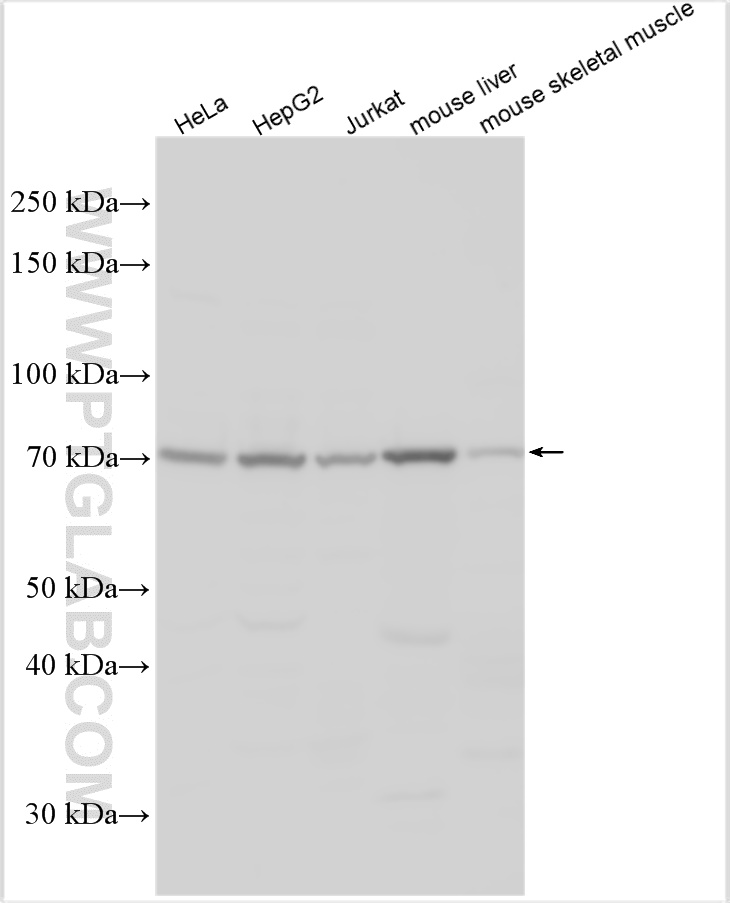验证数据展示
经过测试的应用
| Positive WB detected in | HeLa cells, HepG2 cells, Jurkat cells, mouse liver tissue, mouse skeletal muscle tissue |
推荐稀释比
| 应用 | 推荐稀释比 |
|---|---|
| Western Blot (WB) | WB : 1:500-1:2000 |
| It is recommended that this reagent should be titrated in each testing system to obtain optimal results. | |
| Sample-dependent, Check data in validation data gallery. | |
产品信息
15935-1-AP targets ABCD4 in WB, ELISA applications and shows reactivity with human, mouse samples.
| 经测试应用 | WB, ELISA Application Description |
| 经测试反应性 | human, mouse |
| 免疫原 | ABCD4 fusion protein Ag8783 种属同源性预测 |
| 宿主/亚型 | Rabbit / IgG |
| 抗体类别 | Polyclonal |
| 产品类型 | Antibody |
| 全称 | ATP-binding cassette, sub-family D (ALD), member 4 |
| 别名 | ABC41, ABCD4, EST352188, P70R, P79R, PMP69, PMP70 related protein, PXMP1 L, PXMP1L |
| 计算分子量 | 606 aa, 69 kDa |
| 观测分子量 | 70 kDa |
| GenBank蛋白编号 | BC012815 |
| 基因名称 | ABCD4 |
| Gene ID (NCBI) | 5826 |
| RRID | AB_3085475 |
| 偶联类型 | Unconjugated |
| 形式 | Liquid |
| 纯化方式 | Antigen affinity purification |
| UNIPROT ID | O14678 |
| 储存缓冲液 | PBS with 0.02% sodium azide and 50% glycerol , pH 7.3 |
| 储存条件 | Store at -20°C. Stable for one year after shipment. Aliquoting is unnecessary for -20oC storage. |
背景介绍
ABCD4, also known as P70R, PMP69, and PXMP1L, belongs to the ATP-binding cassette (ABC) transporter superfamily. ABCD4 Lysosomal membrane protein that transports cobalamin (Vitamin B12) from the lysosomal lumen to the cytosol in an ATP-dependent manner (PMID: 22922874, 33845046, 28572511). ABCD4 is involved in peroxisomal import of fatty acids and/or fatty acyl-CoAs in the organelle. Mutations in ABCD4 cause a new inborn error of vitamin B12 metabolism, which is related to methylmalonic aciduria and homocystinuria type cblJ (MAHCJ).
实验方案
| Product Specific Protocols | |
|---|---|
| WB protocol for ABCD4 antibody 15935-1-AP | Download protocol |
| Standard Protocols | |
|---|---|
| Click here to view our Standard Protocols |
